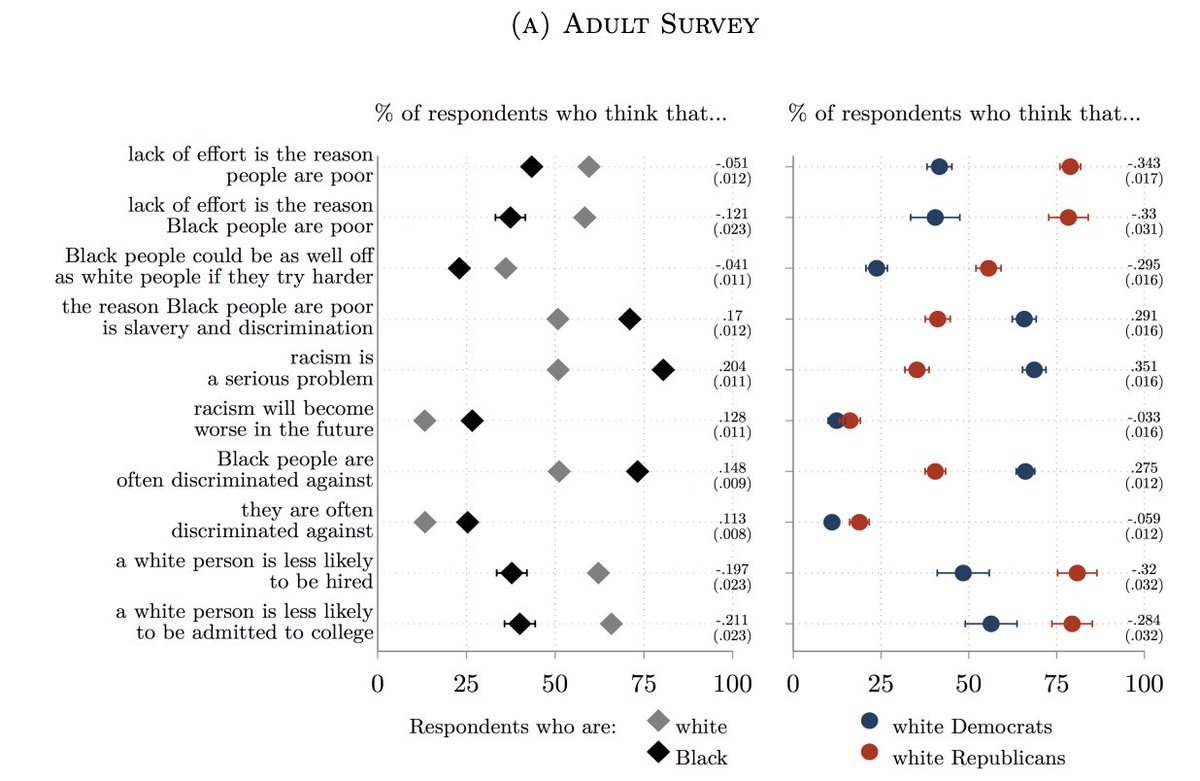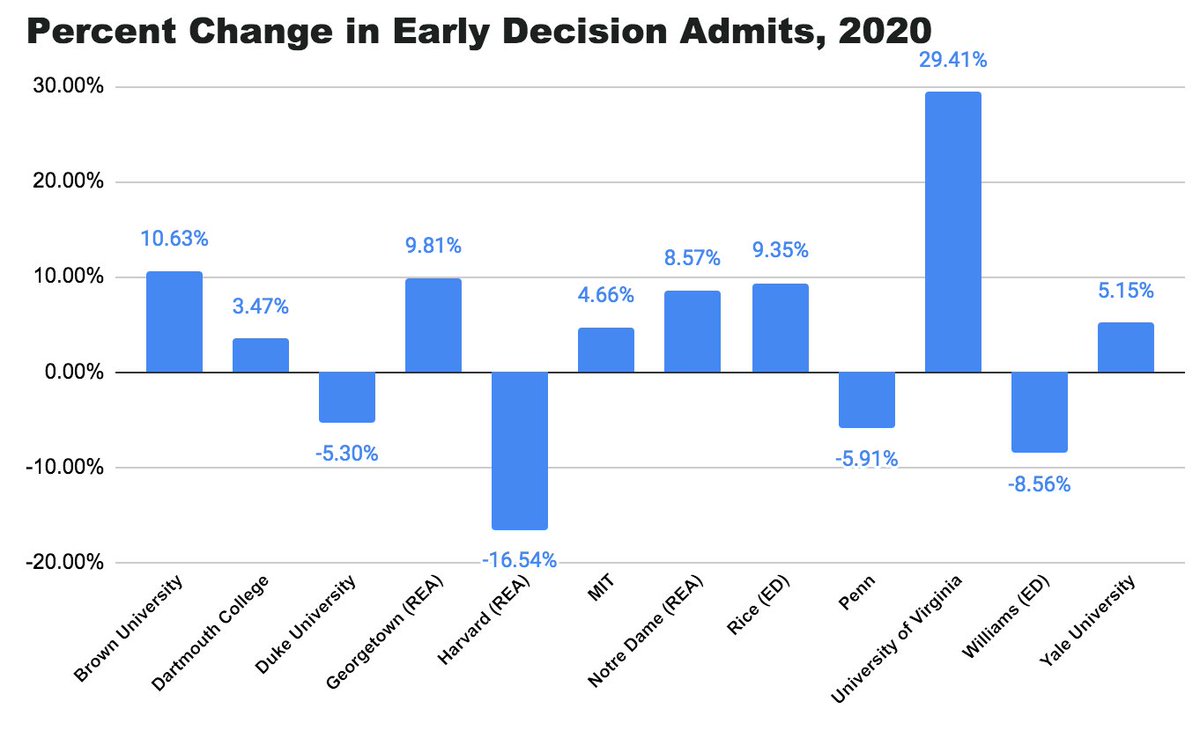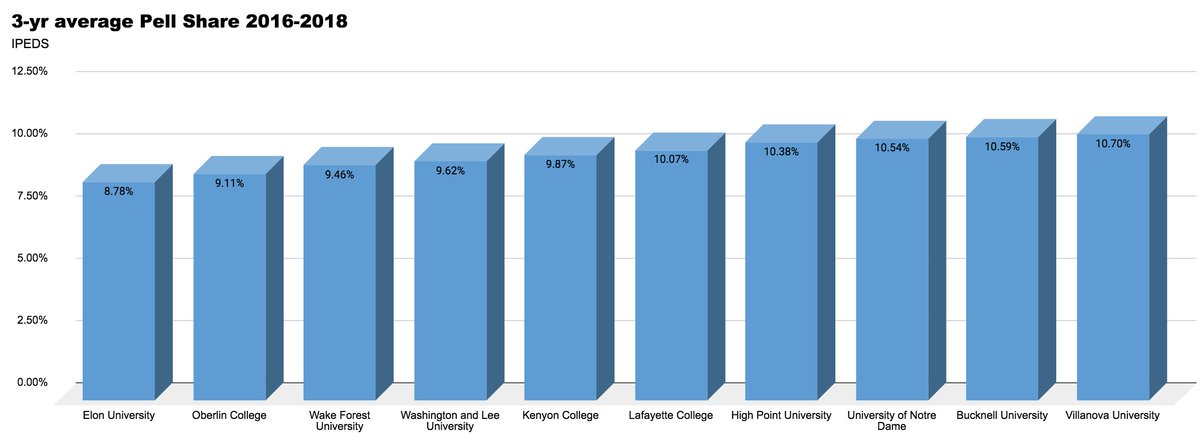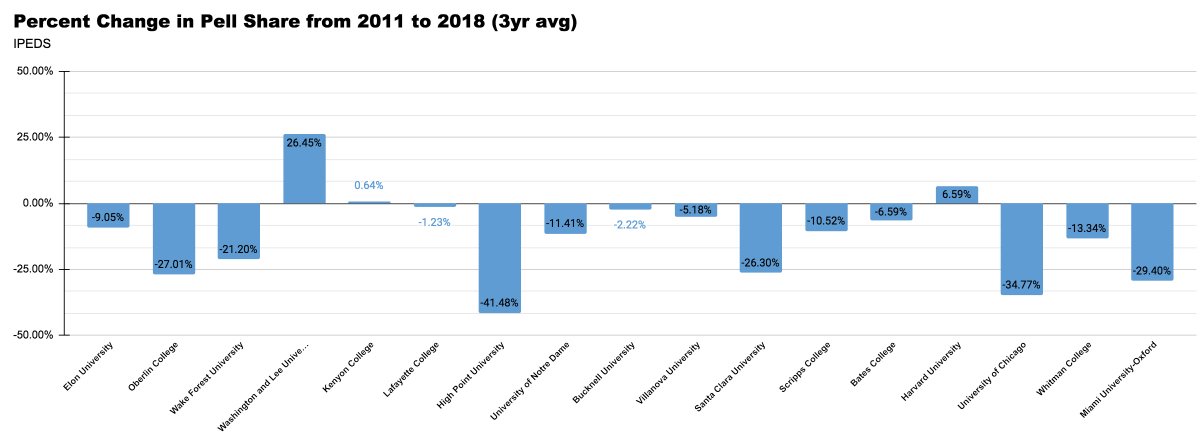
A majority of white people responding to this poll believe it's harder to get into college if you're white.
80% of white Republicans think this, but so do more than 50% of white Democrats.
80% of white Republicans think this, but so do more than 50% of white Democrats.

The numbers are slightly less alarming among teenagers surveyed. Teenagers whose parents are Democrats provide some hope. 

There are 3 problems here.
1. Most students are likely to get into most colleges.
1. Most students are likely to get into most colleges.
1.1
There are over 900 community colleges in the US. Almost all are open admissions for all programs. The same is likely true for the 800 4-yr public and private, not-for-profit institutions that report no applications/admissions data to ED.
There are over 900 community colleges in the US. Almost all are open admissions for all programs. The same is likely true for the 800 4-yr public and private, not-for-profit institutions that report no applications/admissions data to ED.
1.2
Among the ~1500 4-yr colleges that do report application data, more than 3/4 admit more than half their applicants.
Among the ~1500 4-yr colleges that do report application data, more than 3/4 admit more than half their applicants.

1.3
So, respondents to this survey are not really talking about being admitted to college. They are talking about being admitted to highly rejective colleges (even if they don't know that they are).
So, respondents to this survey are not really talking about being admitted to college. They are talking about being admitted to highly rejective colleges (even if they don't know that they are).
2.
It's generally more likely for a person to be admitted if they belong to a group that is desired by a college and that is scarce relative to the overall application pool.
It's generally more likely for a person to be admitted if they belong to a group that is desired by a college and that is scarce relative to the overall application pool.
2.1
So it's more likely for the following to get into many highly rejectives:
Recruited athletes
Children of donors
Legacies
People from Montana, Wyoming, and the Dakotas.
Applicants able to pay full freight.
Students at independent high schools.
So it's more likely for the following to get into many highly rejectives:
Recruited athletes
Children of donors
Legacies
People from Montana, Wyoming, and the Dakotas.
Applicants able to pay full freight.
Students at independent high schools.
2.2
Institutions have many priorities when it comes to admit pools. Racial and ethnic diversity is just one of them. Unlike those who made the list above, this is a good priority.
Institutions have many priorities when it comes to admit pools. Racial and ethnic diversity is just one of them. Unlike those who made the list above, this is a good priority.
3. Racism
3.1
Do I need to elaborate? Really?
Do I need to elaborate? Really?
3.2
I guess I do, since a majority of white respondents, both Democrats and Republicans, believe a simplistic idea without doing any reckoning with the effects white supremacy have had on shaping applicant pools at highly rejective colleges.
I guess I do, since a majority of white respondents, both Democrats and Republicans, believe a simplistic idea without doing any reckoning with the effects white supremacy have had on shaping applicant pools at highly rejective colleges.
3.3
This belief that a white person is "less likely" to get into colleges might be true all things being equal, but all things are not equal.
That's kind of the point of holistic admissions. GPA and test scores do not tell any applicant's whole story.
This belief that a white person is "less likely" to get into colleges might be true all things being equal, but all things are not equal.
That's kind of the point of holistic admissions. GPA and test scores do not tell any applicant's whole story.
3.4
Teenagers provide some glimmer of hope. A minority of teenagers whose parents are Democrats think that being white makes it harder to get into college, which means that some of them are breaking the chain with their parents' racism.
Teenagers provide some glimmer of hope. A minority of teenagers whose parents are Democrats think that being white makes it harder to get into college, which means that some of them are breaking the chain with their parents' racism.

3.5
We proponents of race-conscious admissions need to do a better job of explaining college admissions and fighting to make admissions more equitable.
We proponents of race-conscious admissions need to do a better job of explaining college admissions and fighting to make admissions more equitable.
Here's where you can find the paper by @S_Stantcheva @matteoferroni93 and Alberto F. Alesina: nber.org/papers/w29245
• • •
Missing some Tweet in this thread? You can try to
force a refresh













